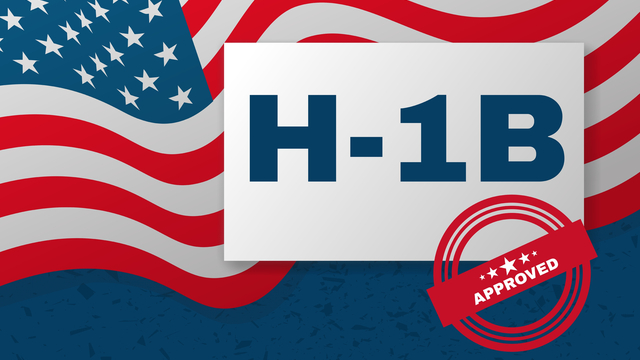U.S. Citizenship and Immigration Services (USCIS) held its annual H-1 visa cap lottery in late March 2022. As of this writing, the first 85,000 cases to be selected for the annual allocation are receiving notifications. Then, the successful employers have 90 days to complete and submit an H-1B petition to the agency for employment to start on October 1, the first day of the federal fiscal year.
Even if you haven’t heard anything yet about your application, all is not lost. Some employers never follow through on their allotments, and USCIS rejects other petitions. So, in the coming months, the agency will conduct additional rounds of H-1B selections until 85,000 have been adjudicated and approved. Continue to check your registrations every few weeks to see if they are selected in the subsequent rounds. The next lottery registration will be in March 2023 for employment to begin on October 1, 2023.
How H-1B Visas Work
H-1B visas allow employment in “specialty occupations” defined as positions requiring at least (1) a bachelor’s degree in a particular type of field or (2) an equivalent combination of education and experience. Under U.S. immigration law, only 85,000 H-1B visas are available each year, of which 20,000 are reserved for workers with a master’s degree or higher from a U.S. educational institution.
Certain types of employers are exempt from the H-1B cap and therefore may sponsor the visas any time of the year: colleges and universities, nonprofits affiliated with colleges and universities, nonprofit research organizations, and government research organizations. All other employers are subject to the cap and must register in the lottery.
Other Possible Approaches
For many other organizations, H-1B visas may not be a feasible option for onboarding new hires because of the lottery and its timing. Here are other good ways to onboard employees:
Student visas. International students in F-1 visa status, including graduate students, qualify for employment authorization for 12 months or as much as 36 months for graduates in certain science, technology, engineering, and mathematics (STEM) fields, for optional practical training (OPT) after completing their degree. An employer usually has at least one opportunity to register a recent graduate (or student nearing graduation) in the H-1B cap lottery.
Multinational transfers. Individuals who have been working abroad as executives, managers, or employees with specialized knowledge for a U.S. company’s affiliate or branch under common ownership and control for at least one year may be transferred to the United States in L-1 visa status. The option may or may not be viable for individuals who are working remotely from abroad, depending on whether the U.S. employer can document a branch or affiliate in the country where the person has been working.
TN Status Under NAFTA/USMCA. Qualified professionals in certain professions listed in the United States-Mexico-Canada Agreement (formerly known as the North American Free Trade Agreement or NAFTA) who are citizens of Canada, Mexico, or the United States may work in their profession in any of the three countries. The application process is simpler than other visa categories. Individuals must document they have a job offer to work in their profession and are a qualified professional as defined in the USMCA. The process is an excellent way for U.S. employers to onboard new employees in a timely manner.
Professionals from Australia, Chile, or Singapore. The United States affords treaty-based immigration options for employing citizens of Australia, Chile, or Singapore. Similar to H-1B visas, the categories are for employment in positions requiring at least a bachelor’s degree in a particular type of field or an equivalent combination of education and experience. The application is simpler than the H-1B process, there’s no lottery for the visas, and they are available any time of year.
Extraordinary ability. Individuals who are recognized as leaders at the top of their field of endeavor may qualify for O-1 visas in the extraordinary ability category. The option can help U.S. employers to onboard qualifying individuals in a timely manner.
In addition to the above common visa categories, there are special visa categories you can use for particular types of employment. So, if H-1Bs visas aren’t feasible, it makes sense to consider whether another visa category may be a good fit for a particular candidate and position.
Leigh Cole is an attorney with Dinse P.C. in Burlington, Vermont. You can reach her at lcole@dinse.com.

